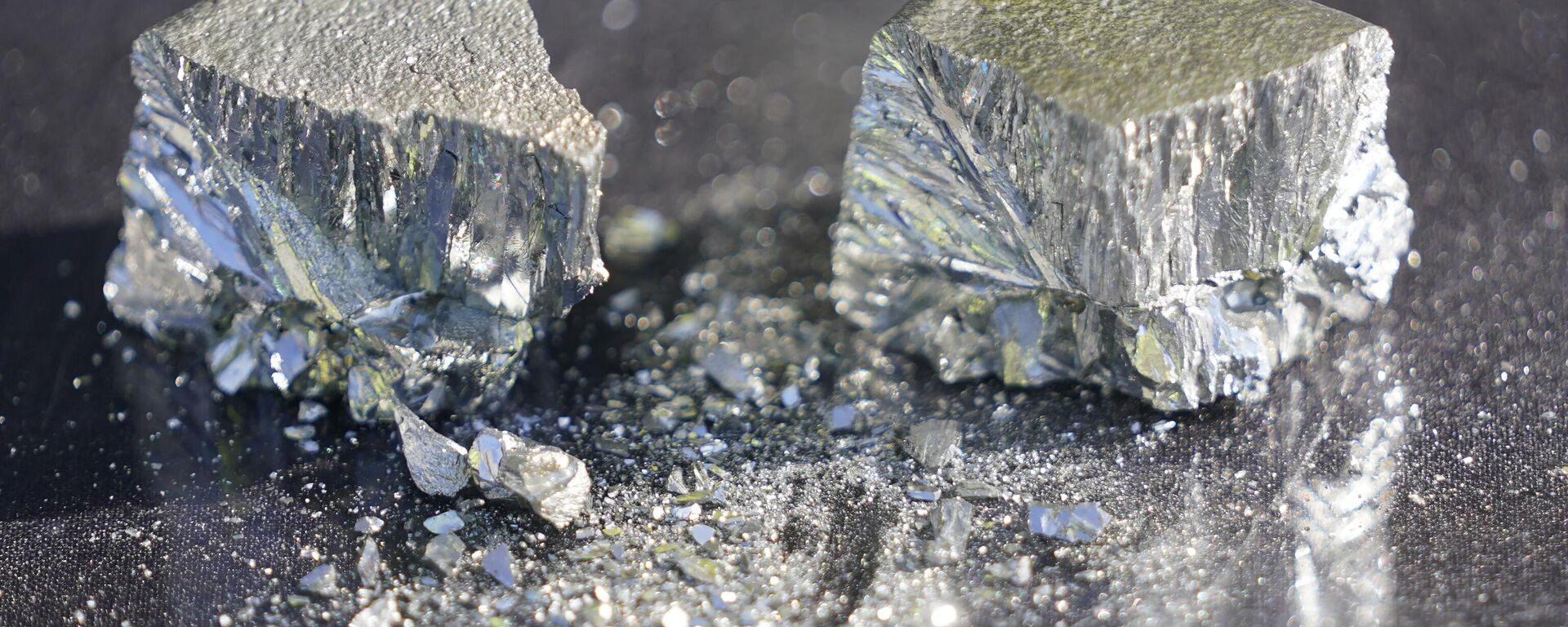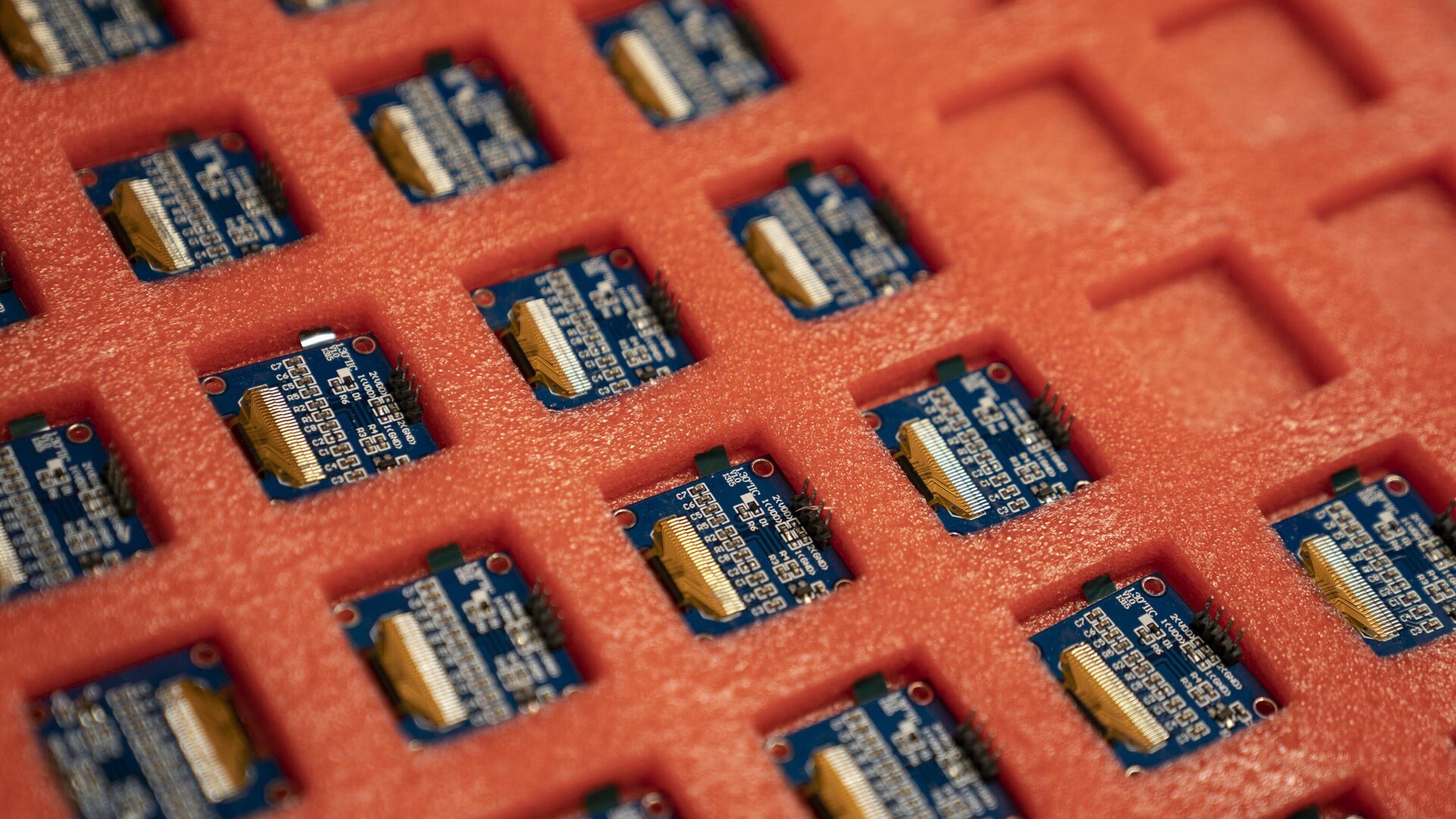https://sputnikglobe.com/20250219/africa-the-game-changer-in-the-us-china-chip-rivalry-1121585399.html
Africa: The Game-Changer in the US-China Chip Rivalry
Africa: The Game-Changer in the US-China Chip Rivalry
Sputnik International
While China dominates rare earth metal production, the global semiconductor race may hinge upon who secures Africa’s resources, says veteran Asia-Pacific affairs expert Thomas Pauken II.
2025-02-19T16:44+0000
2025-02-19T16:44+0000
2025-02-19T16:44+0000
economy
africa insight
donald trump
china
beijing
rare-earth metals
rare-erath materials
chips
chipmaker
semiconductors
https://cdn1.img.sputnikglobe.com/img/07e6/0b/1d/1104824082_0:160:3073:1888_1920x0_80_0_0_4e1e00f69dd772d39e3ca471eab4dcc9.jpg
Africa’s Rare Earth Wealth China’s Advantage and the Race for Africa China controls about 70% of global rare earth mineral output and supply chains, giving it leverage over US chipmakers. Prices surge whenever Beijing imposes export restrictions. In early February, China introduced new controls on five critical minerals in response to the Trump administration's 10% tariffs on Chinese imports. But with Washington prioritizing rare earths and AI, US President Donald Trump may counter Beijing by offering African nations better mining deals and tariff benefits, according to the expert. Trump is already challenging the BRI by boosting alternative initiatives like the India-Middle East Economic Corridor (IMEC) and the I2U2 (India-Israel, US-UAE) partnership.
https://sputnikglobe.com/20250110/battle-for-tech-metals-what-are-17-rare-earth-elements-and-what-are-they-used-for-1121400309.html
china
beijing
southeast asia
Sputnik International
feedback@sputniknews.com
+74956456601
MIA „Rossiya Segodnya“
2025
News
en_EN
Sputnik International
feedback@sputniknews.com
+74956456601
MIA „Rossiya Segodnya“
Sputnik International
feedback@sputniknews.com
+74956456601
MIA „Rossiya Segodnya“
us-china trade war, us-china tariff war, donald trump, rare earth materials, semiconductor technology, africa's rare earth deposits, race for africa, china's belt and road initiative, china's leverage over us chip producers
us-china trade war, us-china tariff war, donald trump, rare earth materials, semiconductor technology, africa's rare earth deposits, race for africa, china's belt and road initiative, china's leverage over us chip producers
Africa: The Game-Changer in the US-China Chip Rivalry
While China dominates rare earth metal production, the global semiconductor race may hinge upon who secures Africa’s resources, says veteran Asia-Pacific affairs expert Thomas Pauken II.
Africa’s Rare Earth Wealth
Rare earths are
17 metallic elements essential for electronics, renewable energy and military technology.
Africa holds an estimated
15% of the world’s rare earth reserves.
By 2029, African mines are expected to supply
10% of global rare earth output, Benchmark Mineral Intelligence reports.
Tanzania, Angola, South Africa, Malawi, and Uganda are key sources, with ongoing exploration projects.
About
37% of Africa’s future supply is destined for Chinese companies, while
63% will be carved up between American, European and other players.
China’s Advantage and the Race for Africa
China controls about 70% of global
rare earth mineral output and supply chains, giving it
leverage over US chipmakers. Prices surge whenever Beijing imposes export restrictions.
In early February, China introduced new controls on five critical minerals in response to the Trump administration's 10% tariffs on Chinese imports.
"Right now, China has a firm foothold in many African countries through the Belt and Road Initiative (BRI)," Pauken notes.
But with Washington prioritizing rare earths and AI, US President Donald Trump may counter Beijing by offering African nations better mining deals and tariff benefits, according to the expert.
Trump is already challenging the BRI by boosting alternative initiatives like the India-Middle East Economic Corridor (IMEC) and the I2U2 (India-Israel, US-UAE) partnership.

10 January 2025, 13:45 GMT



